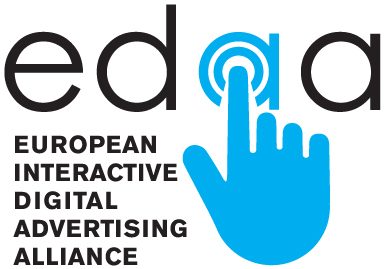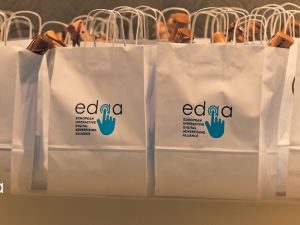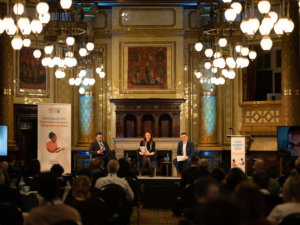 This semester I made the decision to take my first trip across the Atlantic Ocean to study and intern in Brussels. This experience exposed me to many different European cultures and lifestyles, and each difference came with a varying degree of surprise. However, one of the most surprising differences came once I was exposed to how EU citizens choose to express their concerns over digital privacy and data protection when compared to their American counterparts.
This semester I made the decision to take my first trip across the Atlantic Ocean to study and intern in Brussels. This experience exposed me to many different European cultures and lifestyles, and each difference came with a varying degree of surprise. However, one of the most surprising differences came once I was exposed to how EU citizens choose to express their concerns over digital privacy and data protection when compared to their American counterparts.
As a part of my program in Brussels, I have the opportunity to work as an intern with EDAA – European Interactive Digital Advertising Alliance. EDAA, much like its sister organizations in the USA (DAA) and Canada (DAAC), licenses the “AdChoices Icon” to advertisers who join the program. Through this icon, and the associated YourOnlineChoices.eu website, companies provide consumers with greater control and transparency over the data-driven advertising they see on the internet.
One of my first tasks as a member of the EDAA team was to respond to consumer queries sent through the feedback form on YourOnlineChoices.eu. These queries, received through this form on a daily basis from all EU member states, cover a wide range of topics. Consumers ask about anything from specific technical issues to wishing to remove internet ads all together. In responding to these queries, I saw firsthand the European level of awareness surrounding digital privacy and consumer rights. People across the EU are engaged and up to date on their internet rights. They are willing to express their concerns and questions to organizations directly involved, and, in turn, these organizations, like EDAA, are truly engaged in further educating consumers on their specific digital rights.
Back in the United States, I feel as though these attitudes and expressions are slightly different. Personally, I usually pay attention to specific internet rights and protections when they come under attack. The most notable example came in December 2017 when the Federal Communications Commission (FCC) voted to undo net neutrality, and, even then, the social media conversation surrounding the topic appeared relatively short-lived. It seems to me that the USA has more of a situational awareness regarding digital rights, but this situational awareness still allows for educated and constructive conversations around these topics.
The expression and types of awareness in the area of digital privacy differ between the United States and the European Union. I don’t believe there is a “one-size-fits-all” option, and I am in no place to recommend one option over the other. But I can tell that the current path EDAA and the rest of the digital advertising industry is taking to educate consumers seems to be a good one. I look forward to continuing my observations of these two systems, and I am interested to see what else I can learn in my new European environment over the next few months.
About Owen
Owen McCoy is a second-year student at American University in Washington, D.C. studying Communications, Legal Institutions, Economics, and Government and is currently working as an intern with EDAA.






